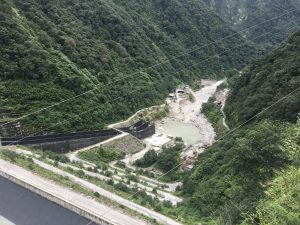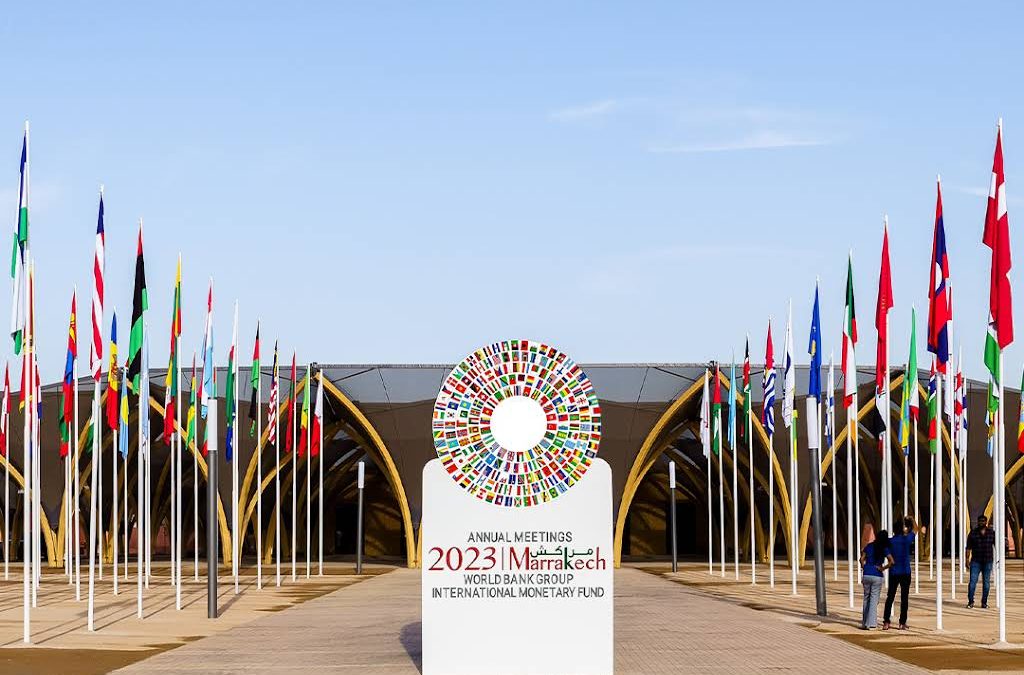From October 9 to 15, the International Monetary Fund and the World Bank Group (IMF-WBG) held its Annual Meetings in Marrakech, Morocco. With the theme, “Global Action, Global Impact”, the events aimed to bring together Bank and Fund officials, states, other multilateral development bank (MDB) representatives, CSOs, and the private sector to discuss matters critical to advancing development finance, policies, and other bank processes.
Throughout the Meetings, discussions on private finance, climate, the World Bank Group’s Evolution Roadmap, and knowledge-sharing were prominent as the institutions are attempting to chart new paths toward development. Despite trying to push for innovative endeavors, the IMF-WBG remains true to its legacy of undermining peoples’ demands for sound and just economic policies and interventions.
The allure of private sector financing
The Annual Meetings saw how Bank and Fund officials amplified the consistent narrative that development will be impossible without the meddling of the private sector. During his townhall session with CSOs, World Bank Group President Ajay Banga expressed that there is not enough money to address the world’s development needs and thus, warrants the need for ‘creative avenues’, such as private capital mobilization, to resolve urgent global challenges.
In the Evolution Roadmap of the WBG, similar rhetoric on private sector-led development is present. Although the latest Development Committee Paper did not explicitly mention the Cascade Approach, its overall argument leans toward dependence on private finance. For instance, the new Private Sector Investment Lab of the WBG allows for the entry of big businesses such as Blackrock, Standard Chartered, and HSBC among others, to interfere in development processes. In reality, the infiltration of corporations in the development arena contributes to more harm than good. Through their private sector arm, the International Finance Corporation (IFC), corporations are given leeway to lead development projects in spite of several cases that blatantly violate safeguards.
A recent example is the Teesta III Hydroelectric Project disaster in Sikkim, Northeast India where fifty people were killed and thousands were displaced due to the outburst of the dam. Civil society from the area is calling on the World Bank, IFC, and private financiers to be held accountable for prioritizing unsustainable projects that harm peoples’ lives.

Photo from X
Similarly, the International Development Assistance 21 (IDA 21) replenishment for 2024 is rigged by private capital interference. Although IDA pledged to increase concessional funding for a new Crisis Facility, which aims to scale up support to address overlapping challenges and complement global efforts to help Ukraine and Moldova, its private sector window will siphon significant financing to subsidize private sector projects under IFC. This is an alarming development in the Bank’s funding practices as it impedes the urgent need for additional and increased financing to confront global challenges.
While the push for more private sector engagements are strengthened, climate financing remains lacking. In talks about the Evolution Roadmap and IDA 21, clear climate-related interventions were vaguely discussed. Many CSOs called for increased concessional climate finance, especially for loss and damage, but the Bank continues to approach the topic in broad strokes only with no concrete follow-through that is grounded on the demands of frontline communities. In addition, the Bank continues to support fossil fuel despite claiming to be Paris-aligned. Meanwhile, the IMF also shadows the same narrative of strengthening partnerships with the private sector to increase climate financing despite the questionable track record of corporations in developing large-scale renewable projects that contribute to environmental degradation and displacement of populations.
The institutions’ dependence on private capital shows their true development priorities – unfit for purpose and unaligned with peoples’ needs amidst the urgency to help communities recover from the overwhelming impacts of multiple crises.
Eight decades of reinforcing the same rhetoric
In 2024, the IMF-WBG will be celebrating their 80th anniversary. From structural adjustment programs (SAPs) during the post-war reconstruction era to neoliberal dictates of the 21st century, the Bank and the Fund should be continually held accountable for their roles in worsening crises. Their economic strategies have been consistently flagged as faulty, contributing to austerity and impoverishment of developing economies. Worse, other MDBs take the IMF-WBG as their blueprint in establishing their own policies and mechanisms, multiplying adverse impacts to communities in different regions.
Eight decades in, the continuing dominance of the United States and Europe in policies remain central and problematic. Their historical accountability for prioritizing their own interests over people-centered development, as well as their current practices and policy conditionalities which only deepen crises are continuously being opposed by civil society. Moreover, the governance structure inside the IMF-WBG is still mostly dominated by global North states which results in decisions that are in favor of their own aspirations. Such dynamics are unfit and unfair as there should be increased and equal representation from the South especially in light of current development conditions that are disproportionately affecting the marginalized.
Despite the 79-year track record of the institutions marred by dubious agreements and conditionalities, the Annual Meetings did not tackle much about the need for robust transparency and accountability mechanisms. Access to information about financial flows remains to be limited and grievance processes for development projects are sometimes abused by partner governments and private entities. Looking at this, it shows how the IMF-WBG carry on with the same path of diluting their responsibility to provide sufficient data and effective assistance to civil society and communities.
Going 80 years and beyond
The IMF-WBG is expected to continue their practices that put private capital and wealthy states first. With the dominance of a few countries, the institutions will be instrumentalized to continue neoliberal dictates that paralyze developing economies.
In the process of streamlining its Environmental and Social Framework (ESF), the World Bank should gear its efforts into making sure that their policies are being properly implemented down to the community level. In one Civil Society Policy Forum (CSPF) session co-organized by The Reality of Aid Network, which tackled human rights due diligence in development projects, the ESF was considered to be too general and unresponsive to the grievances of affected peoples. As a result, reprisals continue at the expense of the environment, and peoples’ rights, livelihood and land.
If the IMF-WBG is truly genuine to undergo reforms, they must examine their own culpability for contributing to crises and confront the roots of inequalities instead of devising ‘innovative’ plans that reinforce the same problems. Following the Annual Meetings, they must rethink their evolution strategies bearing in mind peoples’ demands and development objectives. Their governance structure must also be revamped in a way that will prioritize global South interests in policy-making. Particularly, IMF-WBG must meaningfully involve civil society in decision-making by improving stakeholder engagement processes that will leverage participation of national CSOs and peoples’ organizations, not just of INGOs. Ultimately, to achieve real development, the IMF-WBG is called to put people at the center of their development agenda and uphold strong control over private sector-led development and global North dominance.

